I’m in the Pyrenees this week on a road trip east-to-west from Olot in Catalonia to Lanuza in Aragon, hugging the mountain border with France.
Most of my holidays are food pilgrimages and this one’s no different: I’m here for the cheese, the sausages and the stews.
I only really tried Catalan cheese after moving to Spain, thanks to Vincent in Ruzafa market, who specialises in hand-made Catalan dairy products. He’s an absolute apostle of the stuff and introduced me to my favourite goat cheese of all time —“El Cor” from Casa Mateu, a dairy run by two sisters near the village of Surp in the Pyrenees.
A lot of artisanal cheeses are made in Alt Urgell county but it was nigh on impossible to organise visits — likely cos they’re elbow-deep in curds and not sitting around looking at their DMs. Still, I got lucky and the man at the Mas d’Eroles quesería said we could pop by.
The old farmhouse (main pic) was deserted when we arrived, apart from a grinning cat with half a tail and a chunk out of its ear. We poked around, then rang their number and a man in white wellies shot out of a side building and introduced himself as Salvador Maura, the cheese meister and owner himself.
After a bit of chitchat — so many Spanish people have PTSD from their school exchange in some arse-of-nowhere village in UK/Ireland and Salvador was no exception — he plunged into a speed immersion on how to make cheese.
“Grab that sieve and fill those plastic moulds!” Salvador said. Suddenly I was lobbing curd from the tank into moulds and flipping one on top of the other to make rounded cheese forms. As you can see from the photo, I am beyond delighted and basically living my dream!
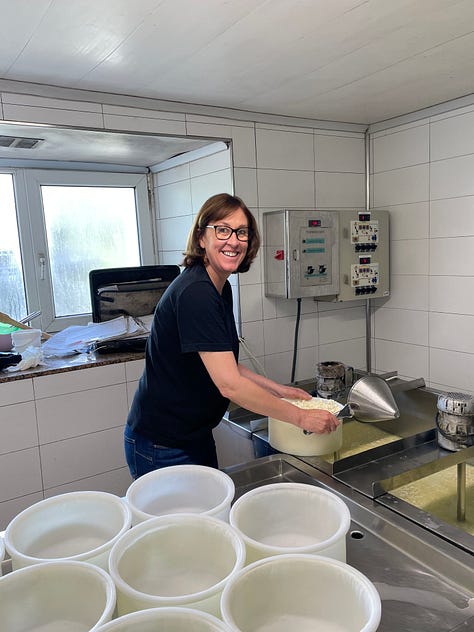
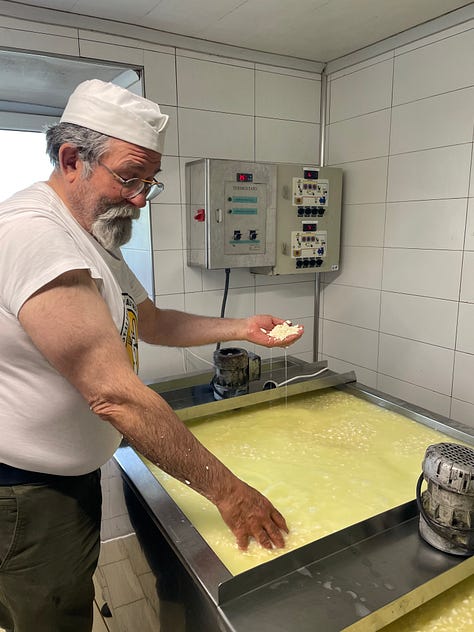
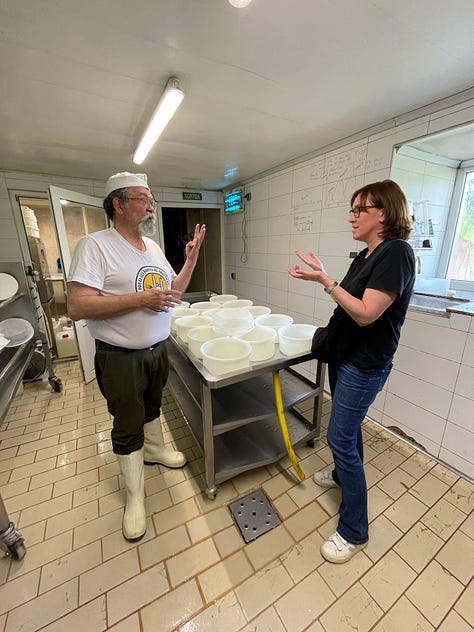

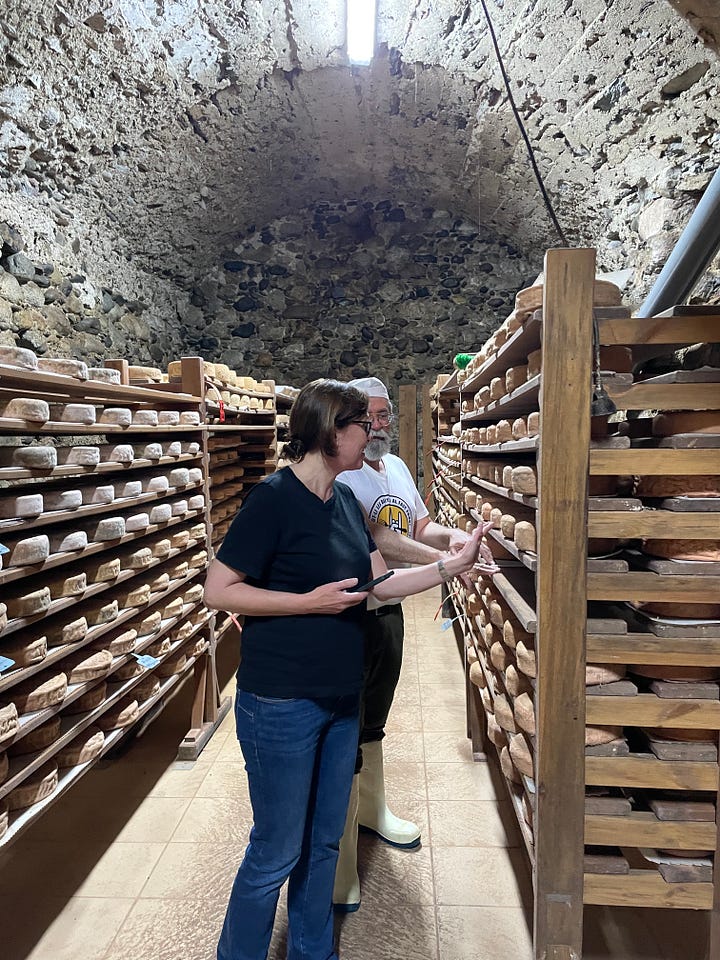
The moulds then get stacked on their sides to press out excess liquid, then moved into the next room for several rounds of drying and salting to get even more water out of them.
Salvador is a Big Cheese (sorry!) in the Pyrenees. An agricultural engineer, he moved here from Barcelona and founded Mas d’Eroles in 2001. He created the Association of Artisan Cheesemakers of the Pyrenees and organised the Pyrenees Artisan Cheese Fair for many years.
He makes sheep and cow milk cheeses. The milk from Brown Swiss cows comes from a neighbouring farm and goes into the tank to start the whole process when it is just a few hours old. The cheeses mature for a minimum of 60 days in a huge underground cellar, some take 90, and some up to six months.
Some of the things I learned from Salvador’s impromptu seminar:
It takes about two hours to separate the curds and whey after adding rennet in a big tank of milk heated to around 37 degrees.
Cows need to eat only grass to yield the best milk, nothing else.
Little mites, which are arachnids, live on the surface of cheese, breaking it down and helping flavour to develop.
It takes 10 litres of cow milk to make 1 kilo of cheese, for sheep that is 6 litres for 1 kilo.
Lots of things about macrobiotics, cheese washing and how to properly aerate your cellar for perfect maturation that I won’t get into here…
With whey-soaked shoes and a bag of Mas d’Eroles cheese, we set off for a tasting at Formatges de l’Abadessa, a micro cheese factory in the old town centre of La Seu d’Urgell.
Judit Carreira, the quietly spoken cheesemaker let us squeeze down the tiny stairs to the old cellar about the size of a big bathroom to admire the shelves of sleeping beauties, all changing and maturing. Judit makes nine different types of organic raw milk cheeses in this tiny space and has won awards for all of them. We loved the blue one with the charcoal rind the most, the Llunna Brunna.
And that was it. Best cheese day ever!




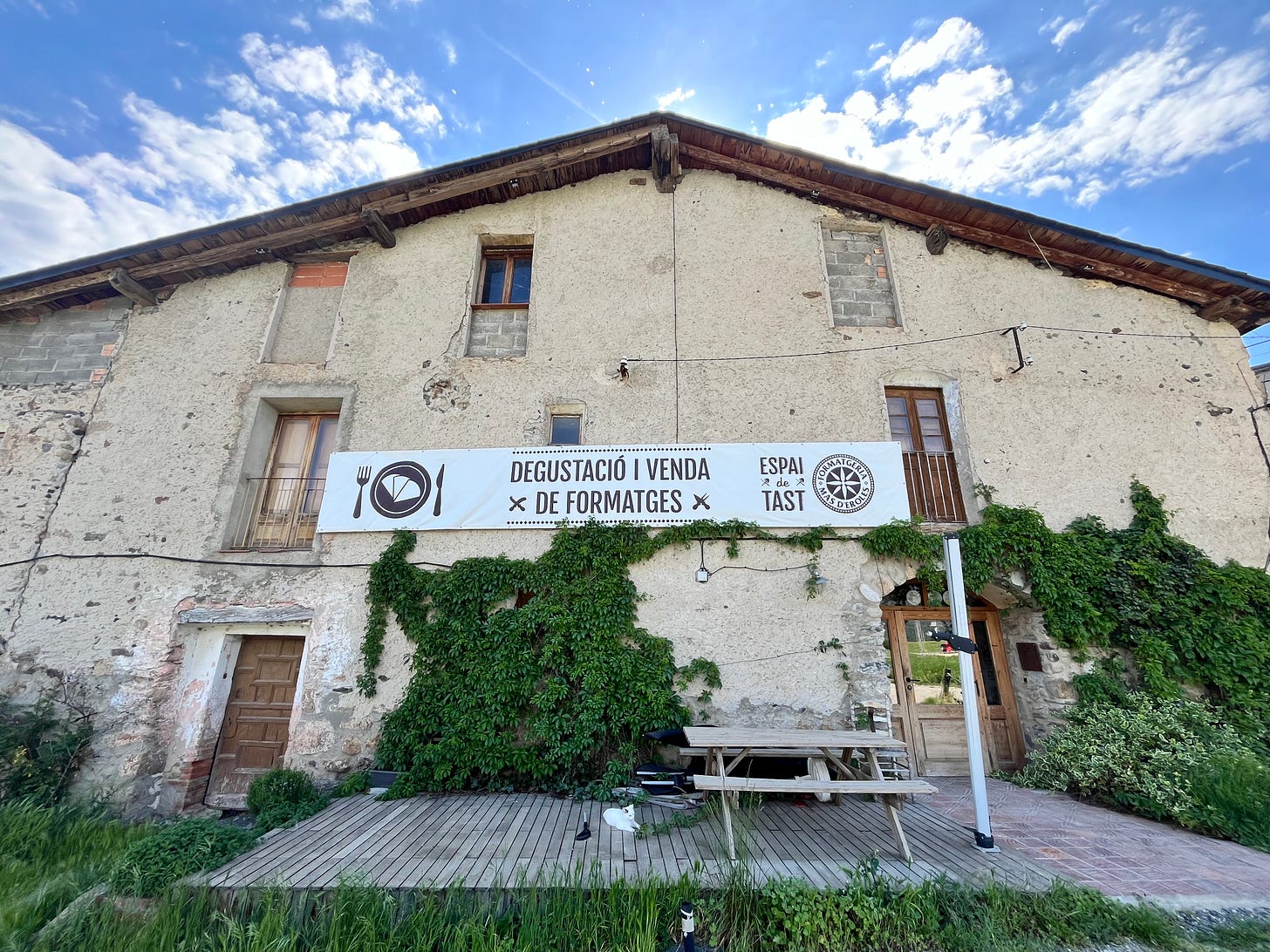
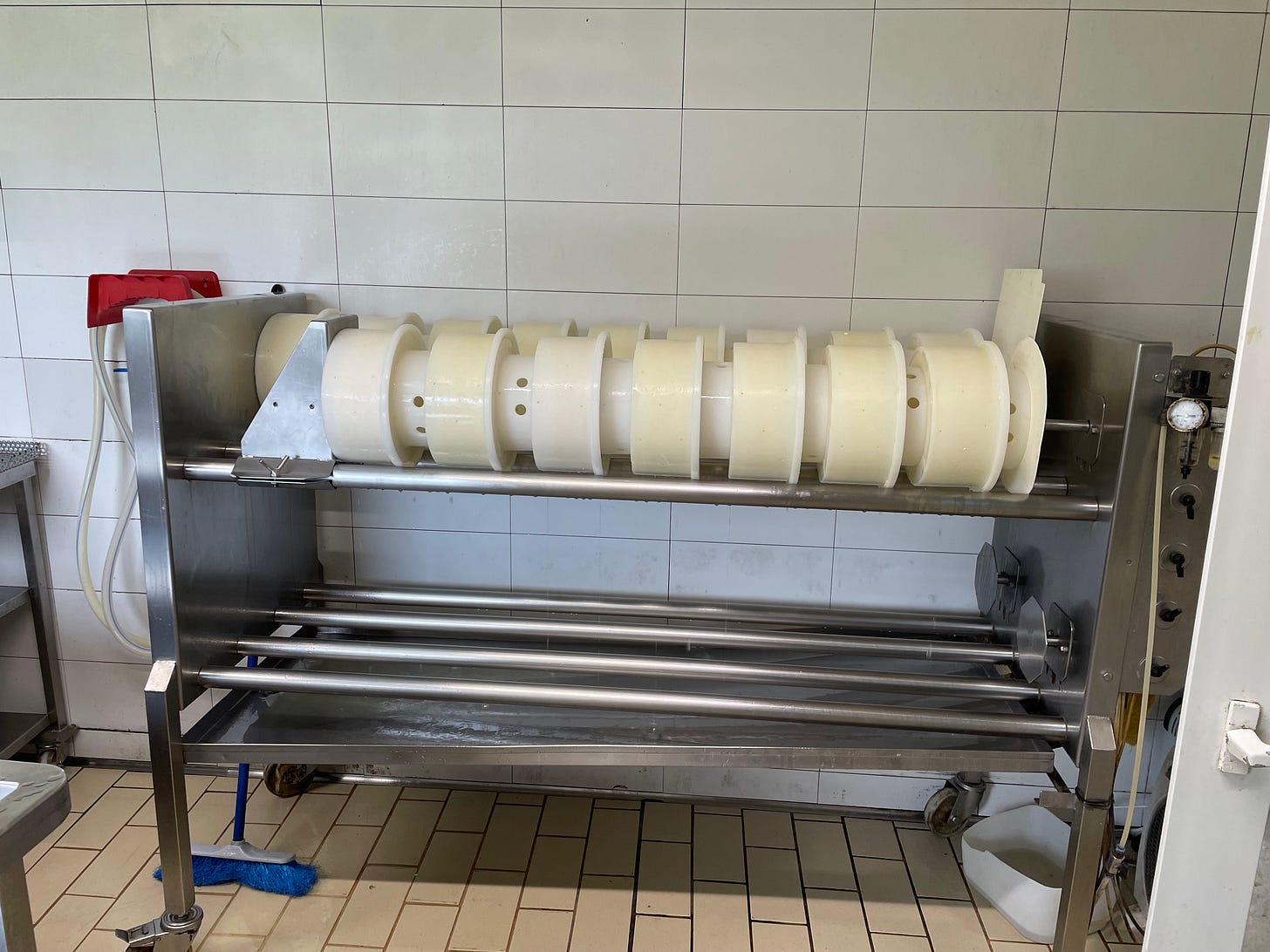

Lovely piece!
Aw man, I have MASSIVE cheese envy. As an agricultural journalist I feel it's my duty to do this trip one day - totally for my readers, and not to feed my cheese obsession..... 😏